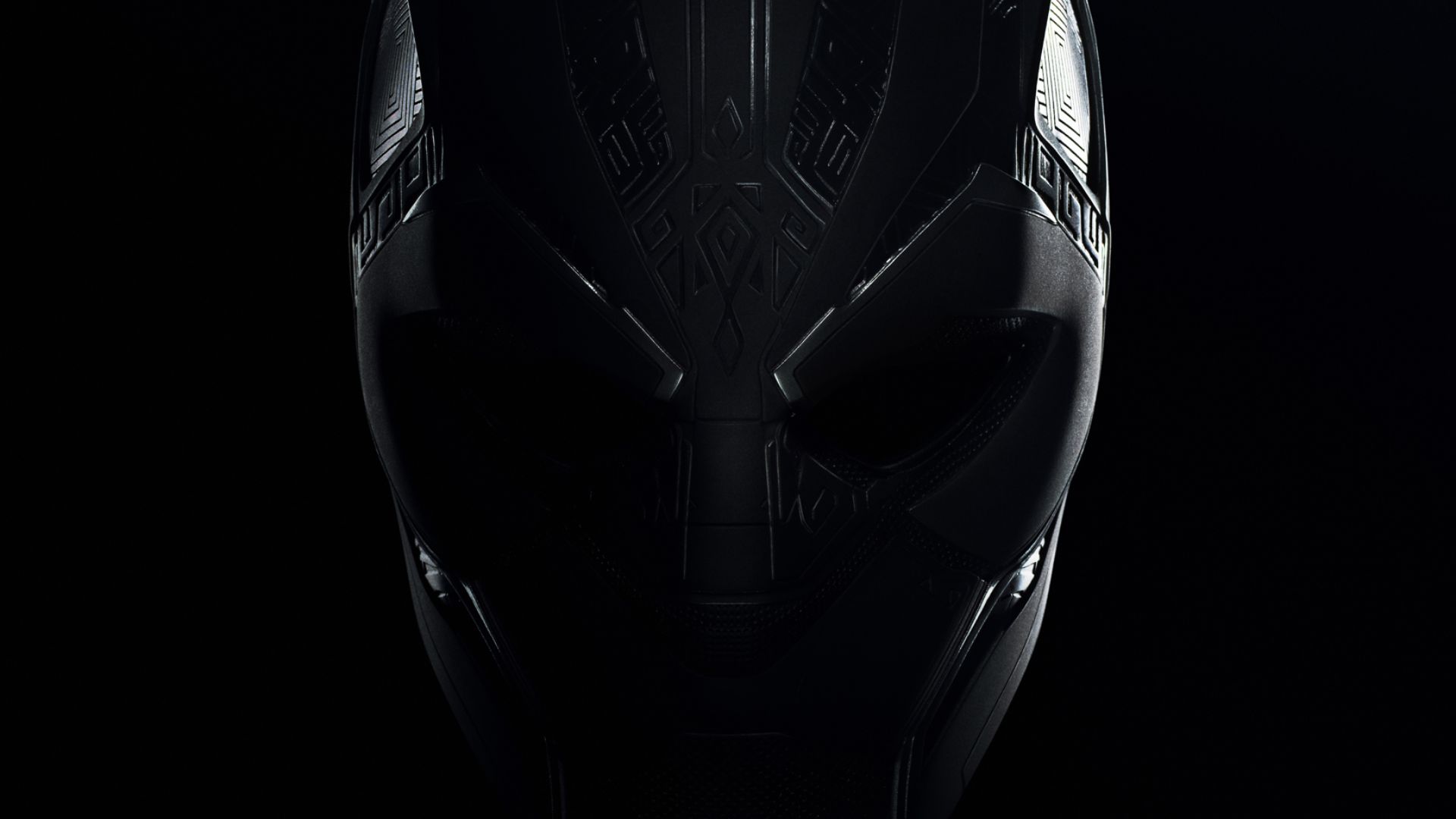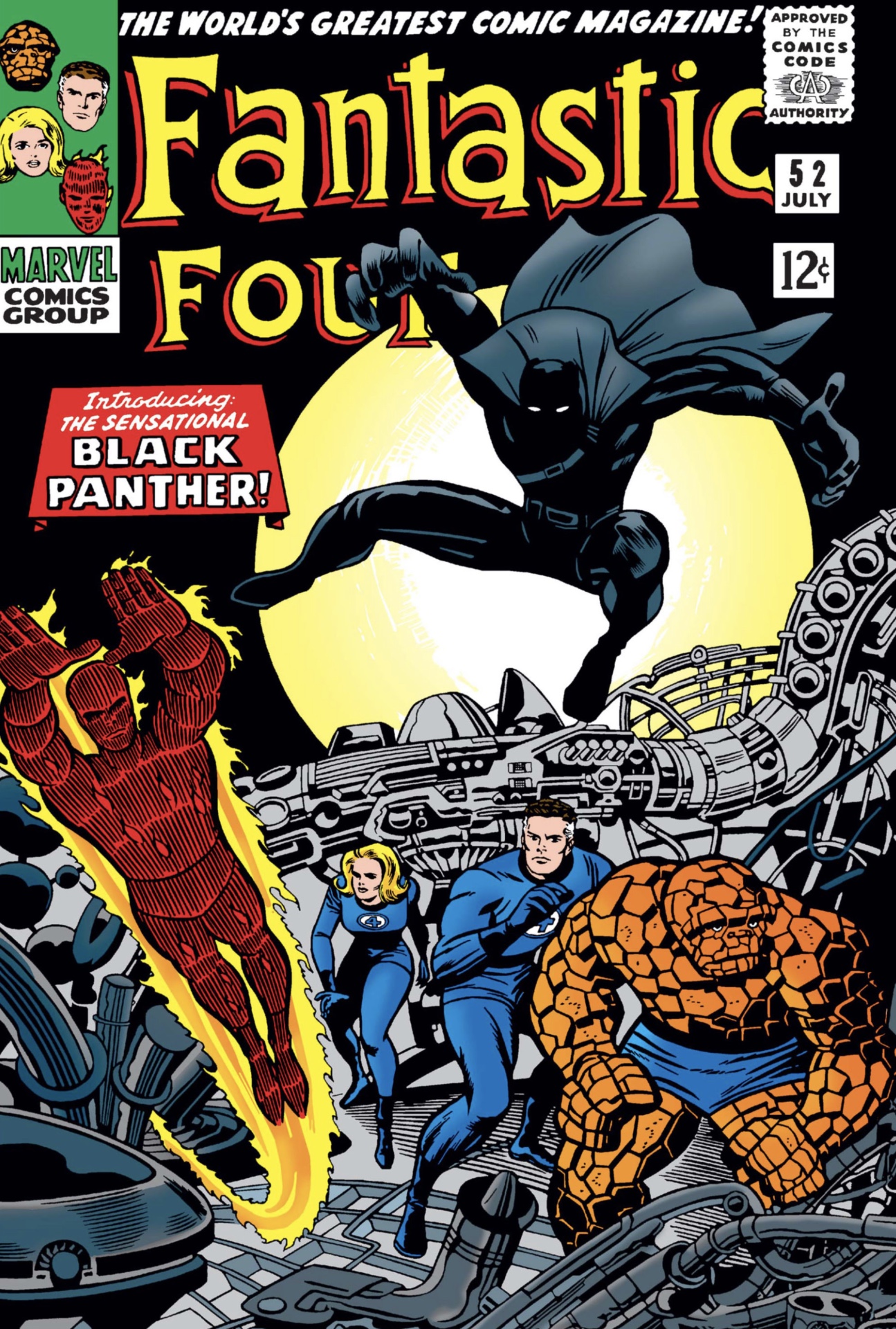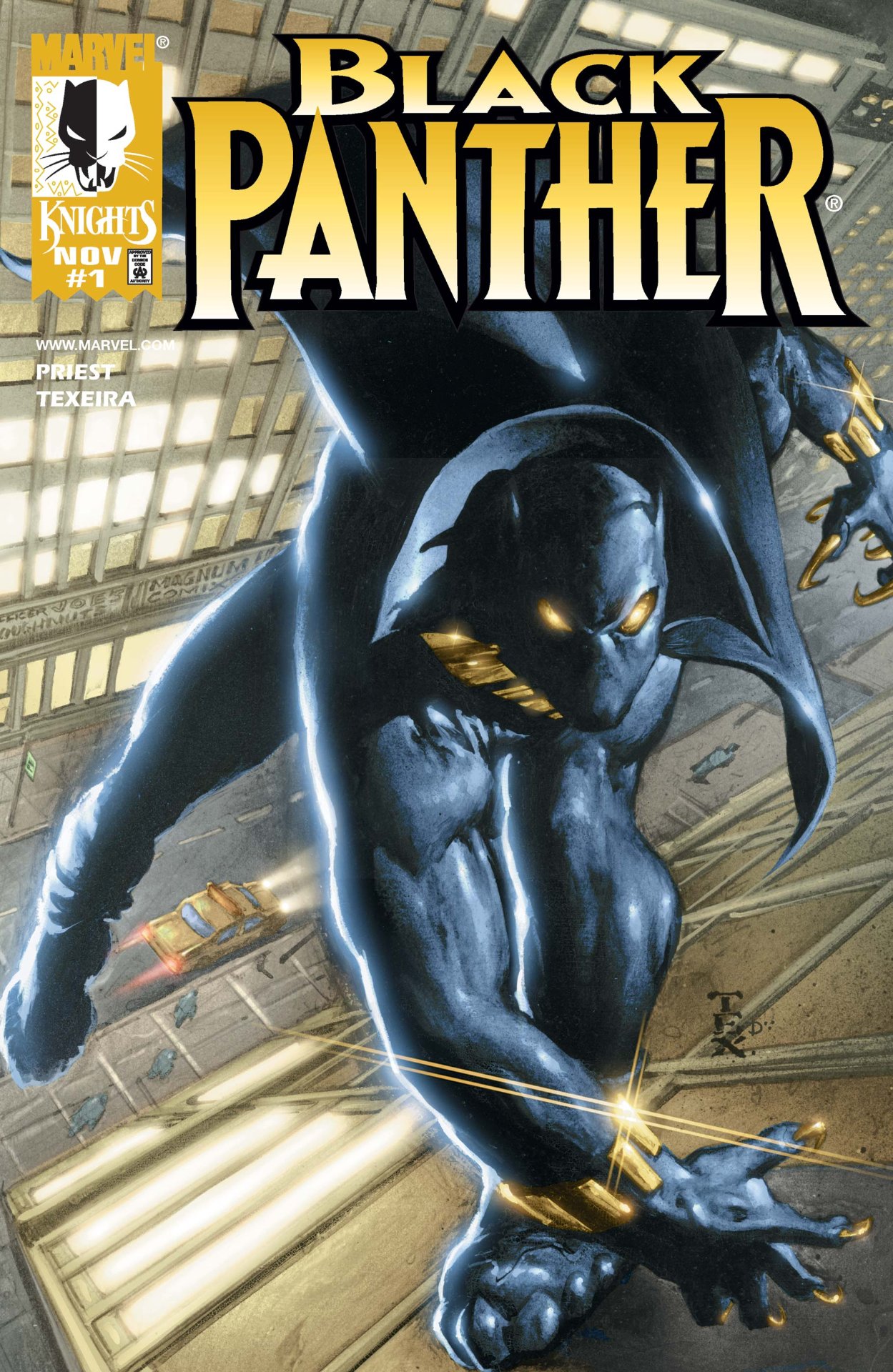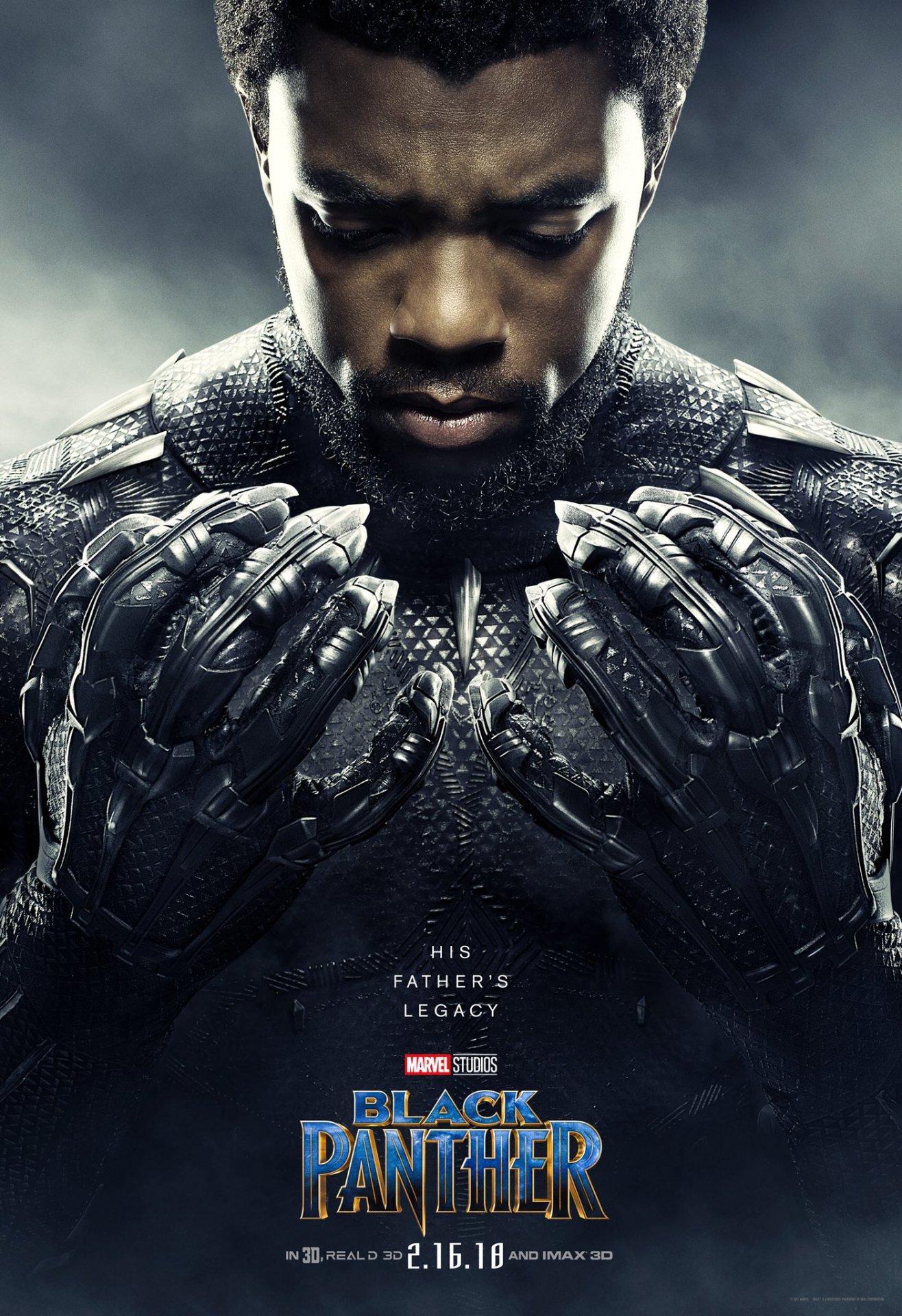Black Panther was one of the original 10 MCU characters Marvel Studios was founded on
The role of Black Panther is to be determined in Wakanda Forever. The key role of Black Panther in MCU history is a matter of record

Black Panther: Wakanda Forever will open in theaters on November 11, but without its original titular star T'Challa, due to the tragic and untimely death of actor Chadwick Boseman.
The world expects a new Black Panther to be crowned in the sequel, with Shuri (Letitia Wright) and M'Baku (Winston Duke) as the odds-on favorites (in that order) to claim the role, due to Marvel Studios' decision not to recast T'Challa out of respect to Boseman.
And while T'Challa is by far the most popular and well-known Black Panther in comic books, Wakanda Forever will highlight that like Captain America, Black Panther is not a singular character, but a role, that can be served by multiple characters.
Whoever claims the title, the hugely successful 2018 film was a watershed moment for Marvel Studios and for superhero films in general, now the dominant box office genre in the movie industry.
And while it's hard to quantify what Black Panther did for diversity and representation, it's not difficult to quantify the other key role Black Panther played in the mere existence of Marvel Studios and the Marvel Cinematic Universe.
History should not forget Black Panther was, in fact, one of the founding fathers of the MCU. The property was one of the ten comic book characters Marvel Studios was originally financed on, 13 years before Black Panther's film debut.
Let us explain...
Comic deals, prizes and latest news
Get the best comic news, insights, opinions, analysis and more!
The original 10

Three years before Robert Downey Jr. launched Iron Man into the Hollywood stratosphere, Marvel Studios was just a $525 million glint in then-Marvel Entertainment chairman/CEO Avi Arad's eye.
On September 5, 2005, four years before Marvel was acquired by Disney, what was then the privately-owned Marvel Enterprises renamed itself Marvel Entertainment and completely rewrote its future by officially announcing a plan to produce its own theatrical films, raising half a billion dollars to do so. However, the movie rights to what the world assumed were Marvel's most valuable properties were held at other Hollywood studios.
The X-Men, the Fantastic Four, and Daredevil were at 20th Century Fox (pre-Disney acquisition of course), with Spider-Man, Venom, and all Spider-family characters at Sony Pictures/Columbia Pictures. The Hulk and Namor were at Universal Pictures, and Ghost Rider, the Punisher, and Blade were scattered around other studios. Even Iron Man and Thor were held at Paramount Pictures, who as part of the original deal would distribute two films a year for Marvel.
Marvel's ambitious and surprising plan relied on a handful of what were then considered (and probably in practical value at the time) second and third-tier intellectual property. The original slate of characters/properties that were intended to become ten shared universe films was (in the original order of announcement) Captain America, The Avengers, Nick Fury, Black Panther, Ant-Man, Cloak & Dagger, Dr. Strange, Hawkeye, Power Pack, and Shang-Chi, Master of Kung Fu.
But they were not just the ten properties that would star in the shared universe films, their theatrical film rights also served as the collateral against a $525m investment that would allow Marvel Entertainment to start their own feature film production company, or in other words what would become the Marvel Studios we all know now.
That's right. If Marvel's Hollywood plan had failed, the film rights for all of those characters including Black Panther and the iconic Captain America would have become the property of Merrill Lynch, Pierce, Fenner & Smith Inc.
Not the Marvel Studios we know now

The 2022 Marvel Studios is such a runaway, world-conquering success story, it's hard to relate today to what a gamble it was then. Remember, Marvel Enterprises was at the time just seven years removed from emerging from Chapter 11 bankruptcy after a tumultuous '90s that began with the company going public and then going through a constant series of acquisitions, mergers, reorganizations, and battles for control throughout the decade.
The plan to fold in Iron Man, the Hulk, and Thor, and then much later Spider-Man into what became the fully-realized MCU was hatched in years subsequent to 2005, as would the reacquisition of the rights to nearly all of Marvel's characters minus the Spider-Man family over the last 16 years.
The original financial deal and the Hollywood plan were hardly considered home runs by analysts at the time, with many thinking the Marvel Comics properties fronting the film slate and backing the financial deal had limited market appeal and might genuinely be at risk.
Not to mention a shared universe the size and scope of what the MCU is now was at best an untried experiment at the time, with several efforts to mimic the MCU's success failing or achieving limited success since.
Of course, the Black Panther and The Avengers franchises that will continue with Wakanda Forever in November and Avengers: The Kang Dynasty and Secret Wars in 2025 went on to become some of the most commercially and critically successful motion pictures of all time, with Captain America, Nick Fury, Dr. Strange, Ant-Man, and Hawkeye all key pieces of the larger puzzle.

Cloak & Dagger went on to have a two-season TV series run on Freeform, although that show's place in the shared universe of the MCU remains to be seen. Shang Chi joined the MCU in his own 2021 feature film The Legend of the Ten Rings, Hawkeye got his own Disney Plus streaming series, and Nick Fury will headline 2023's Secret Invasion, also on Disney Plus.
Ant-Man's third film Quantumania opens in 2023, followed in 2024 by Captain America: New World Order, that series' fourth installment but the first starring Sam Wilson as Steve Roger's hand-picked successor to the Captain America title.
Of the original 10, only Power Pack has yet to make its live-action and/or MCU debut. And that's probably just a matter of time.
Speaking of Power Pack and the MCU, it's one of the Marvel Comics properties from the 1980s most ripe for adaptation.
I'm not just the Newsarama founder and editor-in-chief, I'm also a reader. And that reference is just a little bit older than the beginning of my Newsarama journey. I founded what would become the comic book news site in 1996, and except for a brief sojourn at Marvel Comics as its marketing and communications manager in 2003, I've been writing about new comic book titles, creative changes, and occasionally offering my perspective on important industry events and developments for the 25 years since. Despite many changes to Newsarama, my passion for the medium of comic books and the characters makes the last quarter-century (it's crazy to see that in writing) time spent doing what I love most.


